“It Could Be Better” – You’re Making It Worse
“The view out the back is even better on a clearer day.”
“That Alaskan crab you just had is even more fantastic in the winter when it’s in season!”
“That plant looks even more impressive when it gets more sunlight than it has lately.”
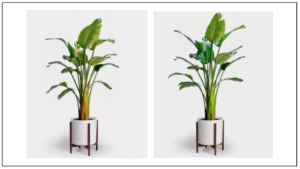 If you’ve been following along, I’m a nerd. Part of my regular weekly activity is reading research. And my favorite type? When the conclusion is totally counterintuitive. The study from this week? It came from April’s Journal of Marketing Research¹.
If you’ve been following along, I’m a nerd. Part of my regular weekly activity is reading research. And my favorite type? When the conclusion is totally counterintuitive. The study from this week? It came from April’s Journal of Marketing Research¹.
Often, salespeople add in these little comments – referred to as “upward counterfactual information” (UCI). Why? Because when something isn’t showing as perfectly as it could, we believe sharing these UCIs will enhance the prospect’s impressions.
As it turns out, it does the opposite. In other words, “It could be better” makes it worse!
In this study, the proctors conducted eight similar tests using different scenarios like the three mentioned above – selling a house on a foggy day, discussing the satisfaction patrons had at a restaurant with their Alaskan crab entre, and selling a plant that had a little brown & wilt in it. In each case, the control group wasn’t UCId, and the test group was. In each case, the perception of the buyer was higher in the control group.
It’s so timely. I watched a demo last week, and the rep said two things like it:
“Page load times would be even faster when using the internet in the office versus in home like I’m showing you right now.” then,
“The user interface will look a lot cleaner once it’s fully customized to your environment.”
Calling attention to an obvious imperfection, then claiming it to be more perfect in optimal conditions is NOT transparency. Our buying brains see that, know that, and note that. In each case, the presenter believed the prospect’s impression would be higher with the UCI. They were wrong.
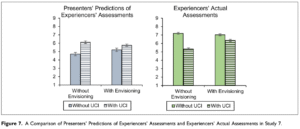
On the left, the chart shows how the presenter believed that without UCI, the prospect would have a lower impression of the product. With it, they’d have a higher. In both cases, they were wrong.
However, in the study, when salespeople did the opposite – calling out something that’s not always as perfect as it appears, the impression by the buyer of the presenter…and the product…went up! That’s “downward” information, and it’s helping convert prospects.
Why? I’ve done a lot of reading and thinking about this, as the research doesn’t draw the reason why, just the study conclusion. Here’s my take…
We Are Prediction Machines
We, as human beings, are prediction machines. When reality doesn’t meet the promise, our brains have a difficult time predicting. When we are overpromised and underdelivered, that obviously erodes trust. However, when we’re overpromised while witnessing a reality, our trust is eroded. When we are witnessing a reality, and the salesperson is willing to point out that what you’re witnessing is as good as it gets, that BUILDS trust. That helps our brains predict. It sets an expectation that can be consistently met.
And, in an as-a-service or subscription economy, the ‘downward’ information not only endears customers to purchase, but improves the odds that they’ll stay, buy more, and advocate for you and your solutions.
As I told my wife about this study, I was reminded that a few years ago, when we welcomed a foreign exchange student to our home for a semester, one of the first things my wife said to him as he walked in, given that we have multiple kids and pets is, “The house is as clean as it can be right now, and will likely not look this clean again during your stay.” “It could be worse”? Well, that helps the buying brain predict, builds trust, and speeds decision-making.
However, the “it could be better” is more often than not making it worse.
The unanswered question in my head? Could it be that case studies are chock full of UCI (upward counterfactual information), and are doing more harm than good? What do you think?
¹Li, X., Hsee, C., & O’Brien, E. (2023). “It Could Be Better” Can Make It Worse: When and Why People Mistakenly Communicate Upward Counterfactual Information. Journal of Marketing Research, 60(2), 219-236.

I speak and teach revenue organizations on how to leverage transparency and decision science to maximize their revenue capacity. It’s what I do…teach sellers, their leaders, and really entire revenue organizations how we as human beings make decisions, then how to use that knowledge for good (not evil) in their messaging (informal and formal), negotiations, and revenue leadership. I wrote a 3x award-winning book (𝘛𝘩𝘦 𝘛𝘳𝘢𝘯𝘴𝘱𝘢𝘳𝘦𝘯𝘤𝘺 𝘚𝘢𝘭𝘦), and have a newish book out (𝘛𝘩𝘦 𝘛𝘳𝘢𝘯𝘴𝘱𝘢𝘳𝘦𝘯𝘵 𝘚𝘢𝘭𝘦𝘴 𝘓𝘦𝘢𝘥𝘦𝘳) now that just won its first award!
Reach out if you want to discuss The Transparency Sale sales methodology, or really…anything else (sales kickoffs, workshops, keynotes, the economy, history, etc.)! Email info@toddcaponi.com or call 847-999-0420.
Sign up for the newsletter for more of my nonsense in your inbox every other week, with some sales history sprinkled on top…Sign Up – The Transparent Newsletter


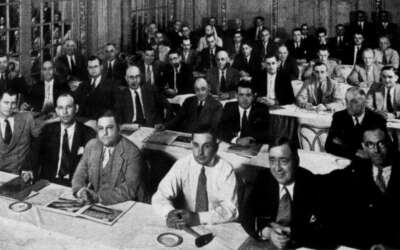
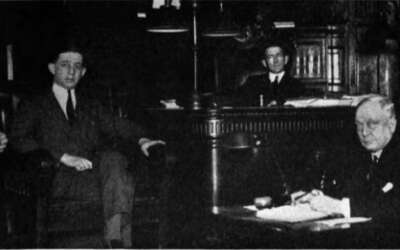
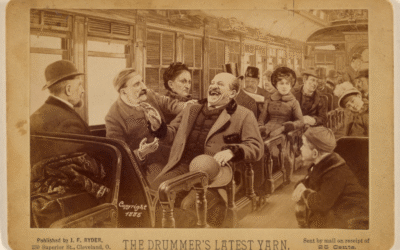
0 Comments